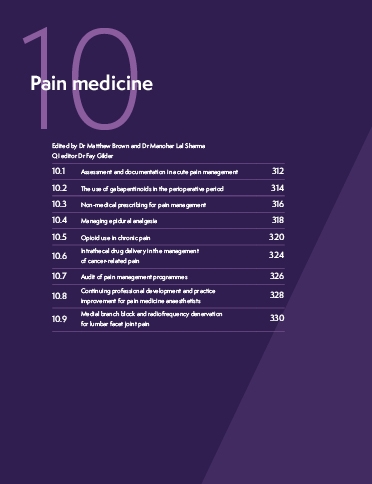
Activity: Clinical audit of own practice or significant input into a group audit of
practice Practice evaluation - Measuring outcomes
Mandatory activity (clinical practice): One of four potential practice evaluationMulti-source feedback; Peer review of practice; Patient experience survey; Clinical audit activities
Guide index
 Library > Library guides > Professional development hub > ANZCA and FPM CPD Program
Library > Library guides > Professional development hub > ANZCA and FPM CPD Program
 Category 1: Practice evaluation
Category 1: Practice evaluation
 Category 2: Knowledge & skills
Category 2: Knowledge & skills
***
The Royal College of Anaesthetists (RCoA) has developed a publication titled Raising the Standards: RCoA quality improvement compendium, which provides examples of achievable audits focused mainly on measurement against defined process standards.
ANZCA gratefully acknowledges the RCoA’s willingness to make this document available for our participants. Ready-to-use audit topics and samples relevant to clinical care are presented as a series of chapters (which include perioperative care, pain medicine, intensive care medicine).
 Raising the Standards: RCoA Quality Improvement Compendium, 4e by
The Quality Improvement Compendium, previously known as the Audit Recipe Book, provides a manual of quality improvement (QI) and audit tools for anaesthetists.
Raising the Standards: RCoA Quality Improvement Compendium, 4e by
The Quality Improvement Compendium, previously known as the Audit Recipe Book, provides a manual of quality improvement (QI) and audit tools for anaesthetists.
 Chapter 10 - Pain Medicine, Raising the Standards: RCoA Quality Improvement Compendium, 4e by
The Quality Improvement Compendium, previously known as the Audit Recipe Book, provides a manual of quality improvement (QI) and audit tools for anaesthetists.
Chapter 10 - Pain Medicine, Raising the Standards: RCoA Quality Improvement Compendium, 4e by
The Quality Improvement Compendium, previously known as the Audit Recipe Book, provides a manual of quality improvement (QI) and audit tools for anaesthetists.
The Medical Council of New Zealand website outlines their expectations on audit with some examples relevant to clinical practice.

 Best Practice in Clinical Audit by
This document is the result of wide consultation and workshops with clinicians, service managers, and clinical audit staff, as well as representatives of a range of professional bodies including the Academy of Medical Royal Colleges.
Best Practice in Clinical Audit by
This document is the result of wide consultation and workshops with clinicians, service managers, and clinical audit staff, as well as representatives of a range of professional bodies including the Academy of Medical Royal Colleges.
 Surgical Audit Guide, 5e by
Surgical Audit Guide, 5e by  National Safety and Quality Health Service Standards, 2e by
The National Safety and Quality Health Service (NSQHS) Standards were developed by the Australian Commission on Safety and Quality in Health Care (the Commission) in collaboration with the Australian Government, states and territories, the private sector, clinical experts, patients and carers. The primary aims of the NSQHS Standards are to protect the public from harm and to improve the quality of health service provision. They provide a quality assurance mechanism that tests whether relevant systems are in place to ensure that expected standards of safety and quality are met. There are eight NSQHS Standards, which cover high-prevalence adverse events, healthcareassociated infections, medication safety, comprehensive care, clinical communication, the prevention and management of pressure injuries, the prevention of falls, and responding to clinical deterioration. Importantly, these NSQHS Standards have provided a nationally consistent statement about the standard of care consumers can expect from their health service organisations.
National Safety and Quality Health Service Standards, 2e by
The National Safety and Quality Health Service (NSQHS) Standards were developed by the Australian Commission on Safety and Quality in Health Care (the Commission) in collaboration with the Australian Government, states and territories, the private sector, clinical experts, patients and carers. The primary aims of the NSQHS Standards are to protect the public from harm and to improve the quality of health service provision. They provide a quality assurance mechanism that tests whether relevant systems are in place to ensure that expected standards of safety and quality are met. There are eight NSQHS Standards, which cover high-prevalence adverse events, healthcareassociated infections, medication safety, comprehensive care, clinical communication, the prevention and management of pressure injuries, the prevention of falls, and responding to clinical deterioration. Importantly, these NSQHS Standards have provided a nationally consistent statement about the standard of care consumers can expect from their health service organisations.



Learn@ANZCA (formerly Networks) is the college's learning management system.
 Note: Some resources located in Learn@ANZCA require that you first register before accessing.
Note: Some resources located in Learn@ANZCA require that you first register before accessing.

Quick links
About ANZCA
Copyright © Australian and New Zealand College of Anaesthetists.